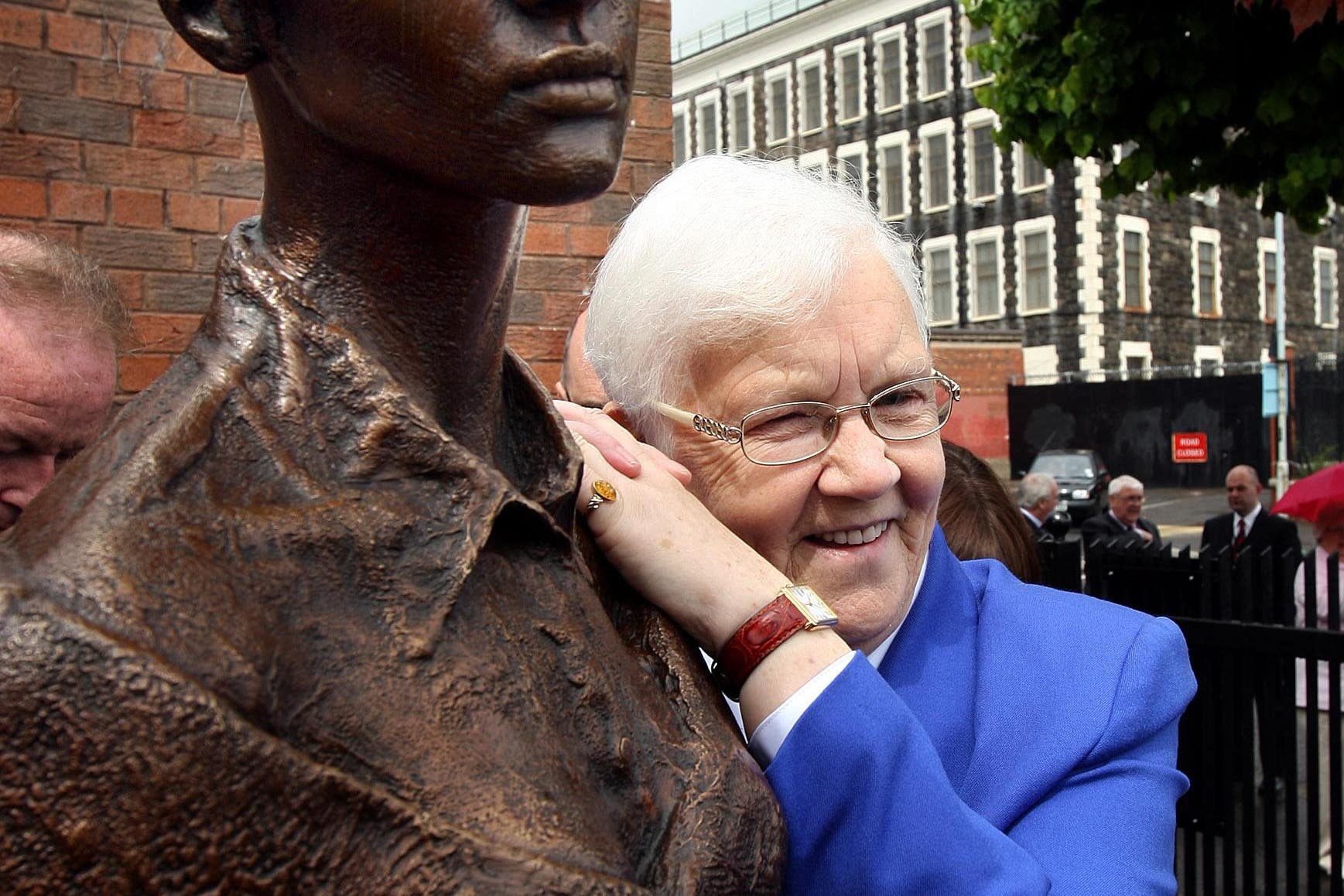Tributes paid to ‘inspirational’ Baroness May Blood, who has died aged 84
As a teenager she challenged Belfast mill bosses on behalf of a largely female workforce for better money and hours.

Your support helps us to tell the story
From reproductive rights to climate change to Big Tech, The Independent is on the ground when the story is developing. Whether it's investigating the financials of Elon Musk's pro-Trump PAC or producing our latest documentary, 'The A Word', which shines a light on the American women fighting for reproductive rights, we know how important it is to parse out the facts from the messaging.
At such a critical moment in US history, we need reporters on the ground. Your donation allows us to keep sending journalists to speak to both sides of the story.
The Independent is trusted by Americans across the entire political spectrum. And unlike many other quality news outlets, we choose not to lock Americans out of our reporting and analysis with paywalls. We believe quality journalism should be available to everyone, paid for by those who can afford it.
Your support makes all the difference.The Irish president has led tributes to the “inspirational” Baroness May Blood, who has died aged 84.
Politicians and trade unionists praised her community work in tackling unemployment in west Belfast, as well as promoting integrated education and striving for peace in Northern Ireland.
The Integrated Education Fund (IEF) said that it was that desire for peace that drove her to do “exceptional things for so many people”.
Remembering a visit the baroness paid to him in June last year, President of Ireland Michael D Higgins said she was “a truly progressive force” and her loss will be “felt by so many”.
“The work she has done on the integrated education campaign, as well as her proud record of trade union activism and the bravest presentation of gender rights, have benefited all those committed to building a generation who will enjoy peace and a shared life together.”
She was one of our finest and will be sorely missed
DUP leader Sir Jeffrey Donaldson paid tribute to the baroness as “a fearless and tireless campaigner to make Northern Ireland a better and more peaceful place”.
“She was someone steeped in the community and focused entirely on making their lives better.”
Ulster Unionist Party leader Doug Beattie said she was “a genuine servant of the people and someone who placed peace, prosperity and fairness at the heart of her politics”.
“She did a great deal of good in her life, was always willing to help others and her passing is a great loss to Northern Ireland.”
Former UUP leader and MLA Mike Nesbitt called her “a force of nature, determined to ensure her community was recognised, helped and assisted”.
“She was a role model as a community worker, trade unionist, activist for integrated education and promoter of the needs of the people. She was one of our finest and will be sorely missed.”
May Blood grew up in a working class community in Belfast before leaving school at a young age to work in the Blackstaff Linen Mill in west of the city.
Although she enjoyed her time at the mill, she was exposed to hard working conditions which she would later work as a trade unionist to improve – fighting for shorter hours and more money for the Belfast mills’ mostly female workforce.
SDLP leader and MP Colum Eastwood said she would be remembered across the North, but particularly in west Belfast.
“May Blood epitomised the ethos of the labour movement, starting out at the age of 14 as an ordinary worker who saw the problems and unfair treatment that existed, particularly for women, and used her skills and formidable nature to secure change.”
ICTU General Secretary Owen Reidy recalled her years as a trade union activist, saying that her life’s mission was “the advancement of working people”, and challenging sectarianism.
“May Blood learned her politics and her vocation in the vanished world of the mills of Belfast, a harsh environment of long hours and lives shortened by unsafe working conditions.
“From her teenage years, she was active in the Transport and General Workers Union, challenging mill bosses on behalf of a largely female workforce for decency at work and winning more money, shorter hours and better lives.
“She took risks for her neighbours, even being burned out of her home at the start of The Troubles, and later took risks for peace in supporting Labour causes, better housing, integrated education, women’s rights and most of all the trade union movement.”
May Blood went on to become a founder member of the Northern Ireland Women’s Coalition, as well as a volunteer fundraiser for the Integrated Education Fund (IEF) in 2001, a fund she would continue to support for the next 22 years as its campaign chair.
The IEF said she helped to raise millions for the fund during that time.
She was also described as a woman whose Christian faith was important to her, and who carried these values throughout her life in her kindness and compassion.
Archbishop John McDowell said Baroness Blood was “a quintessential Belfast woman who spoke directly and constructively from the depth of a kind heart”.
“I know that May has been an inspiration and an encouragement to many people, especially to women, and in that sense her influence lives on in the lives of others.”